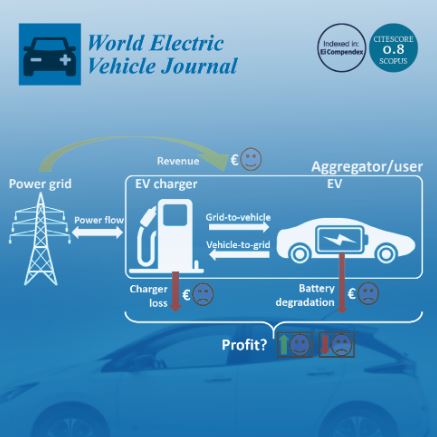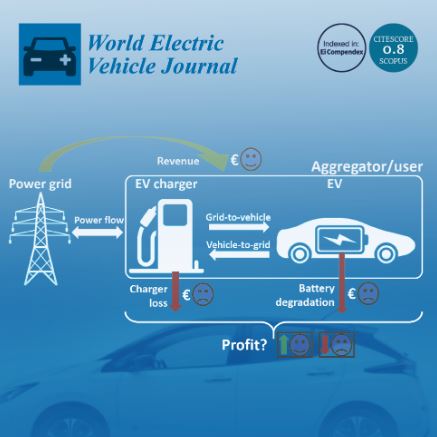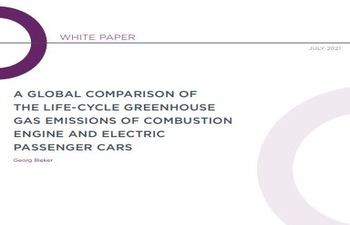Knowledge Hub

Analysis of Electric Moped Scooter Sharing in Berlin: A Technical, Economic and Environmental Perspective
2021
Author(s): Wortmann C, Syré AM, Grahle A, Göhlich D
This study investigates the ability of an e-moped sharing system to substitute passenger car trips, and the resulting economic and environmental effects.

Promoting Electric Vehicle Cell Innovation Diffusion Considering Patent Licensing Strategy: A Combination of Evolutionary Game and Optimization Algorithm Approach
2021
Author(s): Sun W, Zhang Z
In this paper the authors tried to explain the question of how to maximize the patent holder’s return by appropriate patent license strategy to promote EV cell innovation diffusion, when competition and patent licensing relationship exist in the supply chain.

A Novel Hybrid Vehicle Architecture: Modeling, Simulation and Experiments
2018
Author(s): Chanumolu R
In the first part of the thesis, the author presented data collected in the city of Bangalore, India from a very commonly seen mode of transportation for hire in India and other emerging economies, namely a three-wheeled vehicle known as the “auto-rickshaw”. From a statistical analysis, it is shown that the typical range is 72.5 km with a mean speed of 12.5 km/h.

Adaptive and Optimal Guidance Schemes for Reusable Launch Vehicles including Air Breathing Launch Vehicles
2008
Author(s): Brinda V
In this research, a new Integrated Adaptive Guidance algorithm is developed for a class of Reusable Launch Vehicles (RLVs) that perform suborbital flight. This simple and elegant guidance approach can cater to ascent as well as re-entry phases (from lift off to touch down) of any RLV mission, irrespective of the type of propulsion being employed, rocket or air-breathing.

Suspension design for Uniti, a lightweight urban electric vehicle
2018
Author(s): Daniel A
Uniti aims at providing a smart solution to urban commute, something which is sustainable, fun and in step with the strides made in technology. This involved starting from a clean slate and attacking the very fundamental problem; a two-ton machine meant for carrying four to five people being used by only one person for majority of its lifespan, which makes all the more less sense in an urban environment.
This Knowledge Brief gives an introduction to battery trolleybuses with In Motion Charging, ‘the reinvented trolleybus 2.0’, and provides a specific focus on the infrastructural needs and challenges.
Position paper: CO2 Certification for buses
2021
Author(s): International Association of Public Transport (UITP)
The International Association of Public Transport (UITP) shares the societal concern around the emission of carbon dioxide (CO2) and its impact on climate change.
Large-scale Bus Electrification: The Impact on Business Models
2021
Author(s): International Association of Public Transport (UITP)
This Knowledge Brief outlines the impact of large-scale electrification trends on the sector and the effect on operators’ business models. The change is significant enough to alter funding models and financing tools and a city’s governance structure.

E-launch of GIZ's Report-1 & Report-2 on EV Charging Infrastructure and its Grid Integration
2021
Author(s): Deutsche Gesellschaft für Internationale Zusammenarbeit (GIZ) GmbH, IIT Bombay
GIZ along with IIT Bombay is organizing the e-launch of the first two reports from the project “Integration of Electric Vehicles Charging Infrastructure with Distribution Grid: Global Review, India’s Gap Analyses and Way Forward”.

A Global Comparison of the Life-Cycle Greenhouse Gas Emissions of Combustion Engine and Electric Passenger Cars
2021
Author(s): Bieker G
This study is a life-cycle assessment (LCA) of the GHG emissions of passenger cars in China, Europe, India, and the United States, four markets that are home to the majority of global new passenger car sales and reflect much of the variety in the global vehicle market.



